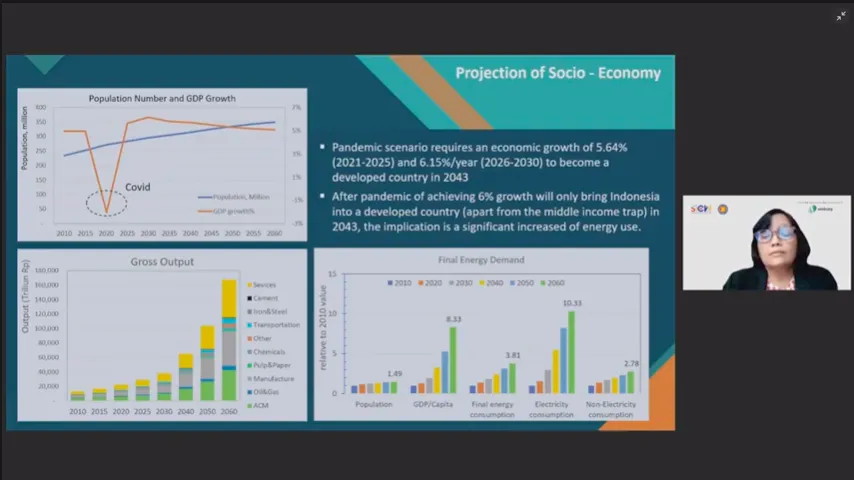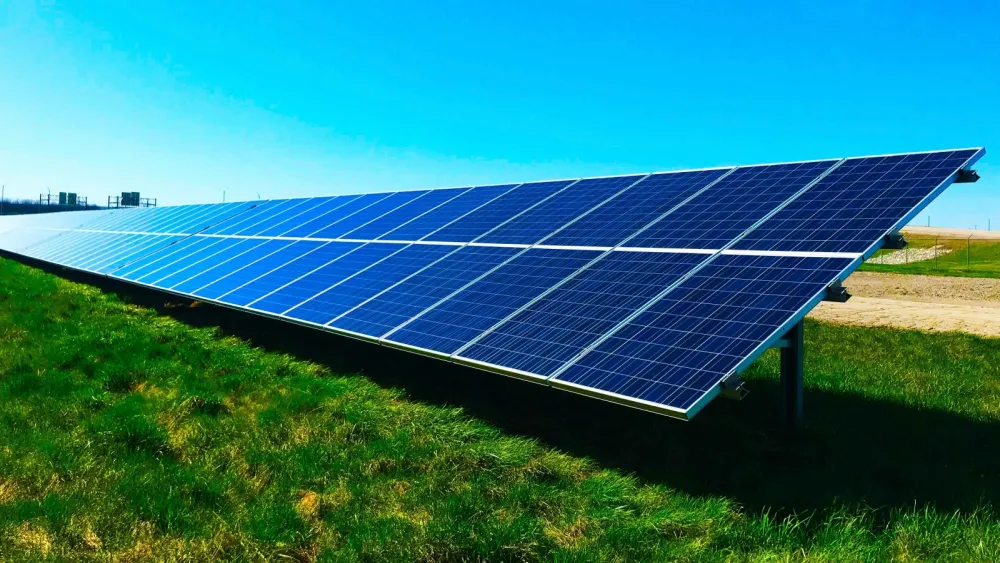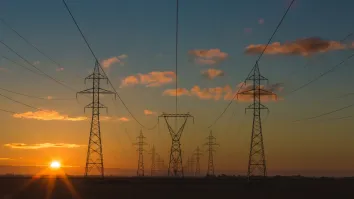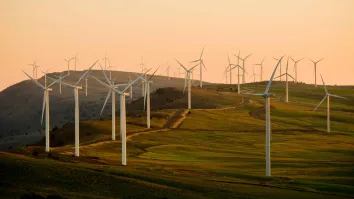
How can Indonesia decarbonise amidst expected energy consumption growth?
Energy consumption is expected to be four times higher in 2060.
Indonesia targets to be a developed country by 2045—a goal that will entail a significant increase in energy use, an expert said during the Singapore International Energy Week. With energy consumption being the highest contributor to carbon emissions, will the country’s 2060 net-zero goals then be compromised?
“We will have high economic development. If we increase our economic growth, and the implication is we know that this significant increase also in energy use,” Retno Gumilang Dewi, head of Center for Research on Energy Policy at Bandung Institute of Technology said.
Indonesia needs an economic growth of 5.64% annually from 2021 to 2025 and 6.15% from 2026 to 2030. Upon achieving this, Dewi forecasted that by 2060, final energy consumption will be 3.81 times higher compared to 2010, whilst electricity consumption will be 10.33 times higher than in the same period.
In the past decade, eIndonesia’s energy systems already contributed 38.3% to total carbon emissions.
Furthermore, according to a report by Climate Transparency, Indonesia’s emissions, excluding land use, increased 140% between 1990 and 2017, with the energy sector increasing the highest. Energy-related emissions in 2019 reached 581 metric tons of carbon dioxide equivalent, with the industrial sector contributing the most at 37% of the total emissions, followed by transport (27%), and electricity and heat generation (27%).
Reducing emissions
To address decarbonisation especially in the energy sector, Dewi said there is a need to aggressively improve efficiency in both the demand and supply side, which will lead to a 73% decline in the energy intensity of the gross domestic product by 2050, compared to 2010.
Decarbonisation of electricity through provisions of clean-/green-/low- and zero-carbon emissions energy, as well as the use of low carbon-emitting fuels and carbon capture and storage would also cut electricity emission intensity by 92% in 2050 from 2010.
She also said that electrification of end-uses such as the adoption of electric vehicles and substation of fossil-fuel based energy systems to electricity will also help in reducing fossil fuel combustions and reduce emissions “as long as the power generation is deeply decarbonised.”
This will then increase the electrification of end-uses by 23% in 2050 from 2010, she said.
Deep decarbonisation will also be a key driver in its transition to clean energy, noting that Indonesia is facing “a situation of uncertainty in deciding a transition” as the country is reliant on fossil fuels, particularly coal, when there is a need to increase renewable energy use.
“It is demanded to contribute a bigger role, and effort to mitigate global climate change…So we need deep decarbonisation toward net-zero emission, particularly in the energy sector,” she said.
“Aiming to a two-degree (Celsius) target, Indonesia has the opportunity to transition its energy system by steeply reducing the carbon intensity in all sectors of the economy. And this transition is known as a deep decarbonisation,” Dewi said.
To achieve this, there is a need for a negative carbon dioxide emission technology such as biomass energy and carbon capture and storage (CCS) or carbon capture, utilization, and storage (CCUS), Dewi said.
Deep-decarbonisation challenges
For the implementation of deep decarbonisation, Dewi said Indonesia needs to develop local capacity in renewables as it is difficult to install solar PV at homes, as well as wind power and bioenergy.
“[There is a] need to reduce coal use significantly because we know that our economies rely on coal and then the coal itself is related to the power stranded assets,” Dewi said.
“The negative impact could be lessened by [continuously] using coal but with a high efficiency system and also equipped with CCS or CCUS and co-firing with biomass,” she added.
Dewi said there is a need for the development of deep biofuels such as fatty acid methyl esters or FAME biodiesel, bio-hydrocarbons, bioethanol, palm oil gasoline, amongst others for transportation. It should also consider the use of sustainable raw materials.
Non-renewable power that uses more efficient fossil fuels such as integrated gasification combined cycle, along with renewable energy such as biomass co-firing and CCS/CCUS should also be practiced.
Aggressive development of renewable energy, like the introduction of solar panels, is also amongst the challenges in the implementation of deep decarbonisation. Aggressive decarbonisation will reduce the carbon footprint of electricity from the grid network, which will then result in a reduced carbon footprint of products manufactured using the same electricity from the grid.
Dewi noted that aggressive decarbonisation will reduce the barriers for Indonesian export materials to countries that have policies relating to the carbon footprint.
She also emphasised the need to further develop renewable energy and power generation technology such as those that have already been established such as bio-fuels-based, hydro, wind, geothermal.
Biofuels based on agricultural waste and algae, solar PV, and biomass through co-firing, gasification, and Organic Cycle need to be developed continuously, she said.
The development needs to consider that “availability is intermittent,” requiring energy storage such as a battery and/or a hybrid system or the combination of renewable with conventional or fossil energy.
“To encourage the development of renewable energy, [it is] necessary to have the right pricing policy and implement feed-in-tariff. And currently the government just released a policy on carbon tax,” she concluded.



















 Advertise
Advertise







